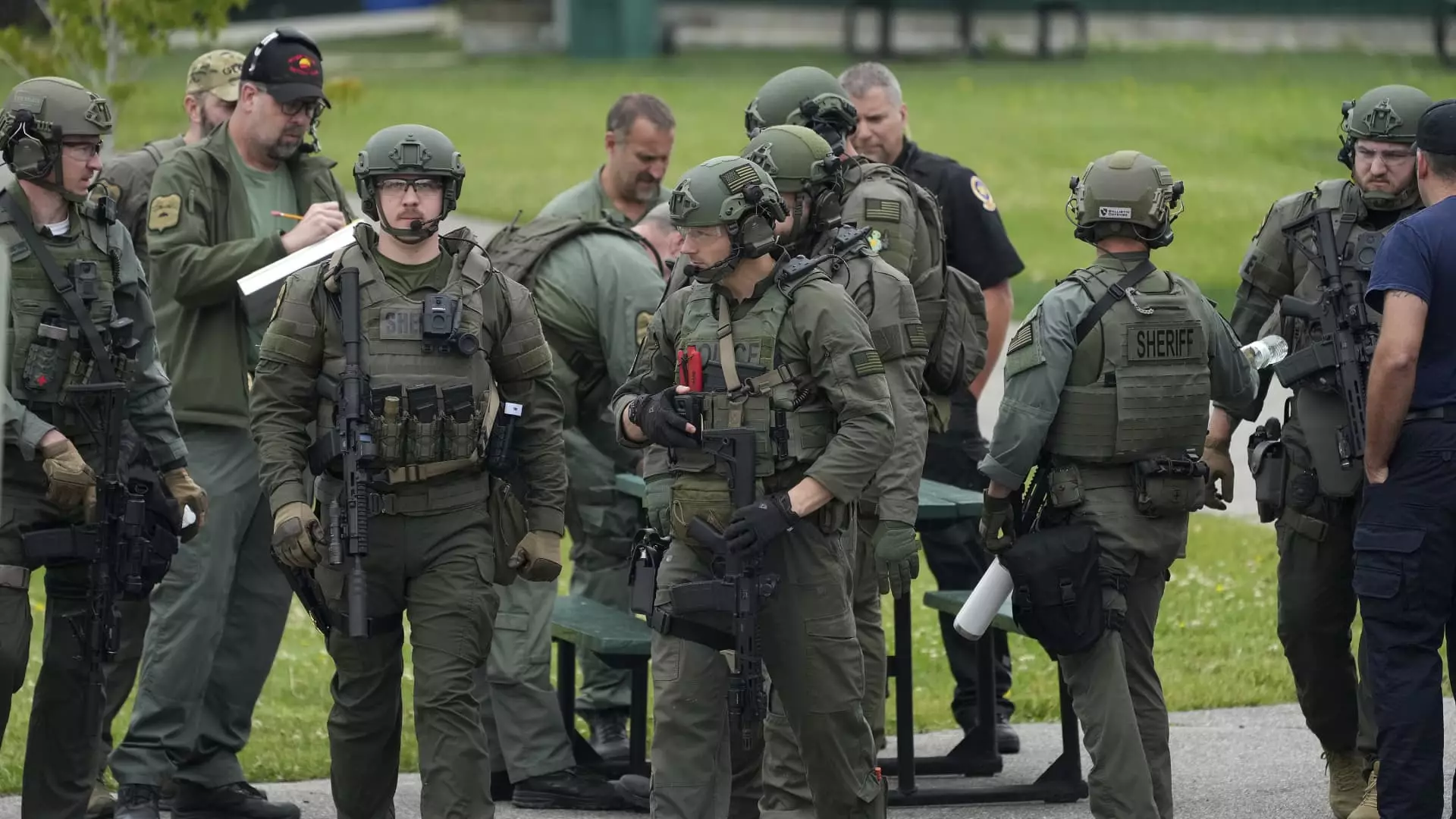The recent tragic events in Minnesota have sent shockwaves across the nation, bringing into stark relief the terrifying intersection of political discourse and violence. The assassination of Democratic state Representative Melissa Hortman and her husband, Mark, under the guise of a police impersonator, is not merely an isolated act of terror; it is indicative of a growing, ugly trend within our political landscape. When elected representatives become targets for their beliefs, we must confront a society teetering dangerously close to chaos.
A Terrifying Unraveling of Safety
The gunman, identified as Vance Luther Boelter, allegedly not only carried out the heinous act against the Hortmans but also targeted other politicians, including state Senator John Hoffman and his wife. This pattern presents a stark warning: the perpetrators of such violence can be driven by politically charged motivations. We can no longer dismiss these occurrences as mere aberrations; they are signals that demand our attention. As Sen. Amy Klobuchar articulated, the fear now resonates throughout Minnesota, where representatives and citizens alike live under the shadow of potential violence.
The Disintegration of Political Discourse
We must ask tough questions about our communal health when political assassination becomes a possible response to disagreement. Hortman was celebrated across party lines for her commitment to public service; her untimely death is a jarring reminder of what it costs to navigate an increasingly divided society. What becomes of a country that allows its discourse to weaponize ideological differences? When dissent resorts to bullets instead of debate, we inevitably spiral into a state of mistrust and hostility. Furthermore, it reflects poorly on how we engage with one another as citizens. Are we so unwilling to counter opinions with argument that we would prefer to resort to threats and violence?
A Call to Collective Action
The reactions from politicians—including heartfelt tributes to Hortman’s legacy and condemnation of politically motivated violence—must be matched by action. Merely expressing outrage is insufficient. As President Trump stated, “such horrific violence will not be tolerated,” but condemnation alone will not curb this growing menace. We require a vigilant populace and a firm response from law enforcement. In an era where political discourse has turned into a battleground, we must reject the notion that violence is an acceptable form of expression. Rather, our response should reinforce the strength of our democratic institutions and our collective responsibility toward peace.
Resiliency Amid Fear
As law enforcement intensifies their manhunt and offers robust rewards for information leading to Boelter’s capture, we should remain vigilant. It is imperative that citizens support law enforcement in bringing this perpetrator to justice, but we must also approach the broader issue of political violence with urgency. Let us remember Melissa Hortman as a dedicated public servant who stood for her beliefs, hoping to inspire others to do the same—without fear of repercussions. In honoring her memory, we shall strive for a political environment where discourse reigns supreme over violence.

